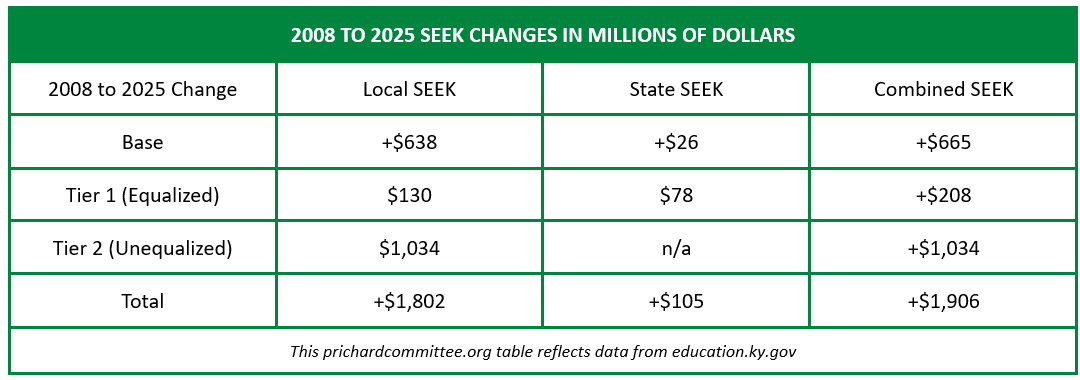September 16, 2021
FOR IMMEDIATE RELEASE
For More Information Contact:
Jessica Fletcher, Senior Director, Communications & External Affairs
(cell) 859-539-0511
jessica.fletcher@prichardcommittee.org
LEXINGTON, Ky. – Bonnie Lash Freeman, a Jefferson County education champion described as “believing in the power of parents,” is the recipient of the 2021 Beverly Nickell Raimondo Leadership Award from the Prichard Committee for Academic Excellence.
“Bonnie has been dedicated to the same principles that Beverly held dear, that every parent has a voice,” said Tony Raimondo, husband of the late Beverly Raimondo.
Freeman is retired from the National Center for Families Learning (NCFL). She managed various projects and grants in the areas of family literacy program development, family engagement, trainer development, and elementary and early childhood language and literacy development. Her expertise in program development included NCFL’s Toyota Family Learning Program, the Kentucky Reading Project, the Head Start Family Literacy Project, the Parent-Child Interaction Project, the Prichard Committee Commonwealth Institute for Parent Leadership, and the Chase Building Readers Project. In 2001, Freeman traveled to New Zealand to support the creation of family literacy programs for Pacific Islander and Maori families.
She also served as a commissioner representing Kentucky on the Education Commission of the States. From 2004 to 2008, Bonnie served on the Kentucky Board of Education, where she held leadership roles as chair and vice-chair of the Curriculum and Assessment Committee. Additionally, she has developed and implemented parent workshops and has consulted with citywide family engagement efforts, such as the Annie E. Casey Making Connections Project and the Leadership Louisville Bingham Fellows Program.
Bonnie served on the Prichard Committee Board of Directors from 2018 through September of this year.
“Bonnie is an incredible educator and advocate for equity and racial justice,” said Prichard Committee Member Mary Gwen Wheeler.
The Prichard Committee award is named in honor and memory of Beverly Nickell Raimondo, who was instrumental in the development of the Commonwealth Institute for Parent Leadership in 1997. Since its founding, the institute has trained and supported hundreds of parents as advocates for educational excellence.
“Bev believed that if parents were united in their call for change, it would lead to a Groundswell of improvement that would sweep across the state. Her legacy continues to live through Bonnie’s efforts and parents across Kentucky who work in her honor to advocate for excellent education for each and every student,” said Brigitte Blom, President and CEO of the Prichard Committee.
###
The Prichard Committee for Academic Excellence is an independent, nonpartisan, citizen-led organization working to improve education in Kentucky – early childhood through postsecondary.












